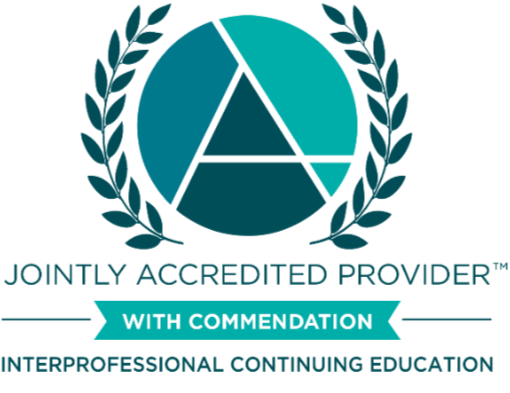Create an account or log in to participate in this activity
Date of Original Release: March 3, 2017
Date of Most Recent Review: August 1, 2023
Date of Expiration: July 31, 2025
Estimated time to complete: 30 minutes
This program has been developed with the collaboration and generous support of Caravan Health.

This activity has been planned and implemented in accordance with the accreditation requirements and policies of the Accreditation Council for Continuing Medical Education (ACCME) through the joint providership of Boston University Chobanian & Avedisian School of Medicine and Caravan Health. Boston University Chobanian & Avedisian School of Medicine is accredited by the ACCME to provide continuing medical education for physicians.
Boston University Chobanian & Avedisian School of Medicine designates this enduring material CME activity for a maximum of 0.50 AMA PRA Category 1 Credit(s)™. Physicians should claim only the credit commensurate with the extent of their participation in the activity.
This educational activity has been provided by Continuing Nursing Education Provider Unit, Boston University Chobanian & Avedisian School of Medicine and jointly provided by Caravan Health.
Nursing Contact Hours: 0.50, of which 0.50 are eligible for pharmacology credit
In order to receive credit, participants must view the content, and complete the post-test and evaluation. Participants who receive a grade of 70% or greater on the post-test will receive credit.
Physicians, nurse practitioners, registered nurses, nurses, physician assistants, pharmacists, medical assistants, and other allied healthcare professionals
At the conclusion of this activity, participants will be better able to:
For questions about CME, please contact us.
Clinical teams often struggle when tasked with re-engineering their office systems to reduce the potential for opioid misuse, addiction or diversion while ensuring safe evidence-based care of their patients with chronic pain. This training module will help all clinicians and their clinical teammates change their approach and processes to address this operational challenge. This module highlights the critical roles each team member (the physician, the nurse, and the front office staff) plays as they work collaboratively within a clinic/office. By focusing on the clinical workflow, the team can identify each team-member's specific role and clearly develop a system that is consistent and reliable. A defined workflow, with assigned staff and electronic systems in place to track all key data and facilitate communication can ensure optimized clinical care.
Boston University Chobanian & Avedisian School of Medicine asks all individuals involved in the development and presentation of Accredited Continuing Education activities to disclose all financial relationships with ineligible companies. This information is disclosed to all activity participants prior to the start of the educational activity. Boston University Chobanian & Avedisian School of Medicine has procedures to mitigate all relevant financial relationships with ineligible companies. In addition, faculty members are asked to disclose when any unapproved use of pharmaceuticals and devices is being discussed.
In accordance with the Standards for Integrity and Independence in Accredited Continuing Education, all relevant financial relationships that faculty, planners, authors, and anyone who may be in control of content have with ineligible companies have been mitigated.
Christopher W. Shanahan, MD, MPH, FACP
Assistant Professor of Medicine
Boston University Chobanian & Avedisian School of Medicine
Boston Medical Center
Daniel P. Alford, MD, MPH (CME Course Director)
Professor of Medicine
Boston University Chobanian & Avedisian School of Medicine
Boston Medical Center
Faculty members have no relevant financial relationships to disclose. Faculty members listed above do not plan on discussing off-label/investigational uses of commercial products.
Patti-Ann Collins, DNP, MSN/MBA, RN, Lead Nurse Planner, Chobanian & Avedisian School of Medicine; Ilana Hardesty, Program Operations Manager, Chobanian & Avedisian School of Medicine
Planning committee members have no relevant financial relationships to disclose.
THIS CONTINUING MEDICAL EDUCATION PROGRAM IS INTENDED SOLELY FOR EDUCATIONAL PURPOSES FOR QUALIFIED HEALTH CARE PROFESSIONALS. IN NO EVENT SHALL BOSTON UNIVERSITY BE LIABLE FOR ANY DECISION MADE OR ACTION TAKEN IN RELIANCE ON THE INFORMATION CONTAINED IN THE PROGRAM. IN NO EVENT SHOULD THE INFORMATION CONTAINED IN THE PROGRAM BE USED AS A SUBSTITUTE FOR PROFESSIONAL CARE. NO PHYSICIAN-PATIENT RELATIONSHIP IS BEING ESTABLISHED. IN NO EVENT SHOULD INFORMATION IN THE MATERIALS REGARDING LAWS, REGULATIONS, OR LEGAL LIABILITY BE CONSIDERED LEGAL ADVICE OR USED AS A SUBSTITUTE FOR CONSULTING WITH AN ATTORNEY.
SCOPE of Pain
© 2025 Trustees of Boston University. Site by Root802.